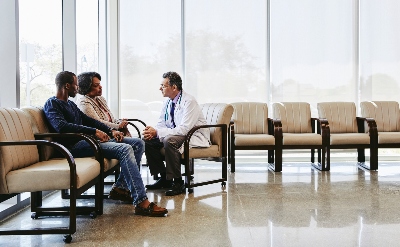Experts from the Society of Immunotherapy of Cancer (SITC) and the American Association for Cancer Research (AACR) are calling for a greater collective understanding of immune-related adverse events following cancer treatment with immunotherapy and how best to manage them so that all eligible patients can benefit from immunotherapy.
Immunotherapy is quickly becoming a new pillar of cancer treatment and is able to offer long term benefits to many patients. However, these treatments can also lead to immune-related adverse events (irAEs) which occur when the immune system becomes overactive as a result of an immunotherapy treatment. Some instances of irAEs are mild and manageable, but some can be life-threatening and cause permanent side effects like immunotherapy-induced autoimmunity and inflammation. The potential of irAEs are limiting the use of immunotherapeutic agents for some patients, especially those considered high risk for such adverse outcomes.

A joint workshop held in March 2020 by SITC past president Lisa H. Butterfield, PhD, Parker Institute For Cancer Immunotherapy and University of California San Francisco; AACR Past President Elizabeth M. Jaffee, MD, FAACR, Sidney Kimmel Comprehensive Cancer Center at Johns Hopkins University; and Arlene H. Sharpe, MD, PhD, FAACR, Harvard Medical School, looked to outline steps needed in order to advance knowledge of irAEs and therefore help make the use of immunotherapeutic agents safer and more effective in clinical practice.
The biggest accomplishments that came out of this joint workshop were that “the group identified datasets linking polymorphisms with risk of specific autoimmune diseases. Some of these polymorphisms are associated with response to immune checkpoint therapies and can be further assessed for predicting immune-related toxicities. Second, the group identified the need for new animal models that would facilitate uncovering mechanisms that cause the immune-mediated events. Third, the group recommended supporting a national biobank linked to immune checkpoint therapy outcomes data that can be used to identify biomarkers that would predict who is at risk for different toxicities,” said Arlene Sharpe, MD, PhD, in an interview published in Cancer Immunology Research.
In addition to the new clinical and scientific findings related to irAEs, the workshop brought attendees from a broad range of disciplines which has paved the way for future collaborations to occur. This is ever so important because collaboration across multiple disciplines and institutions are essential to growing a study population large enough to study irAEs in depth. Forming a national coordinating and governing group is also on the agenda in order to advance irAE research on a large scale.
This joint workshop held by SITC and AACR was just the beginning of future collaborations to grow not just clinical knowledge but also to continue to gain the financial support needed to fund continued clinical research on irAEs.
Photo Credit: Getty Images
